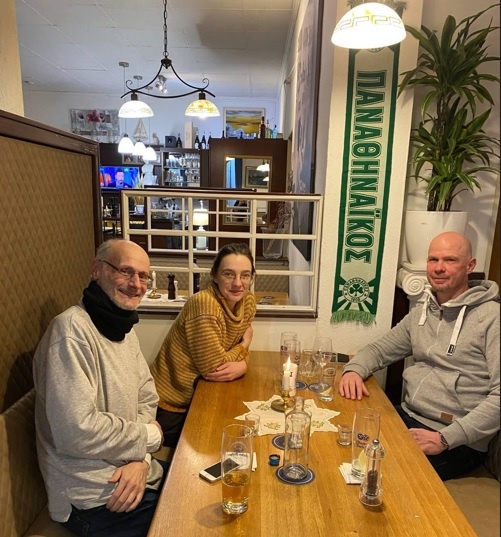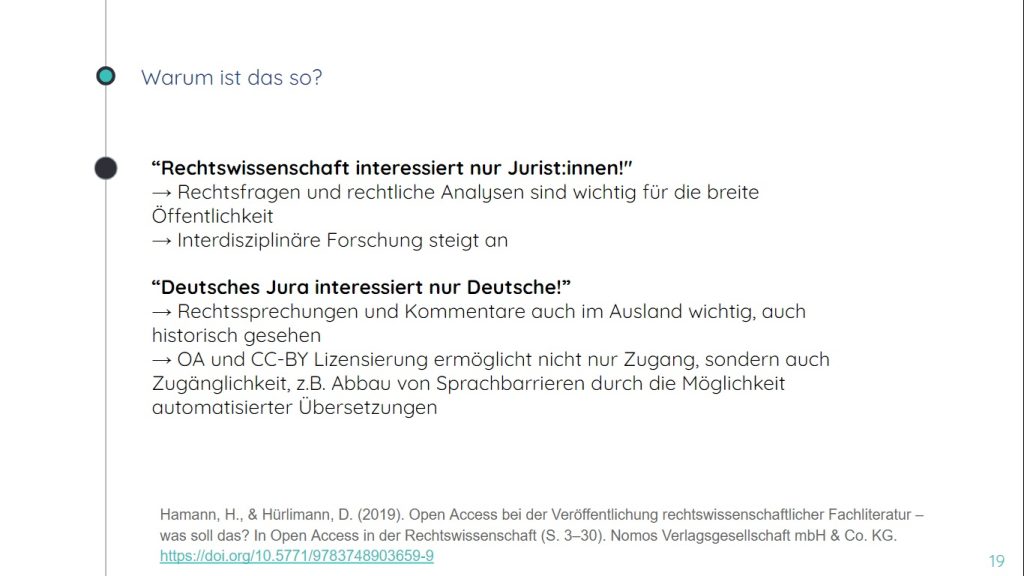This week the scidecode team met in person again (just for the second time, the first one having been in Utrecht last Oct) to discuss how to approach a new project in the area of Open Access (and publishing standards) for the Humanities and Social Sciences and specifically for Law.

Recent times have seen a significant improvement in the technical publishing standards adopted by Open Access journals – meaning aspects like the use of DOIs, ORCIDs and other persistent identifiers, but also the use of appropriate CC licences, the production of XML-JATS version of the articles and the adequate processing of the bibliographic references. This is due to a general maturing of the OA publishing landscape, but the key role played in this evolution by stakeholders like Crossref should also be acknowledged.
It’s fair to say however that we are not there yet in terms of a mature OA publishing landscape – while this may be the case for most of the publishers and journals in the STM disciplines, HSS disciplines are generally lagging quite a bit in this regard. We are about to start a new project in the domain and we are currently looking into Open Access journals in the HSS disciplines with a main focus on Rechtswissenschaften/Law disciplines at this point. There are significant variations across research fields in the HSS but Law is a particularly interesting domain to examine because as a rule the publishing standards could be much improved for these titles.
No Open Access advocate serving researchers in all disciplines – for instance from a multidisciplinary University library – will be surprised when hearing that the current technical standards applied by Law journals are typically very poor. It’s not just that the use of PIDs is rare, that no info is provided on dates of manuscript acceptance or that even in cases where the full-text is made available there’s little info on licences – sometimes there isn’t even a table of contents or a URL to associate to a publication because there’s actually no DOI-identified online version of it. Some publishers of Law journals have a terrible record from an OA advocate perspective, but critically not from a Law scholar’s one: they keep stating that these titles are very good regardless of their poor standards when compared to even the lowest-quality publisher in the STM disciplines.
This is a quite shocking situation at a time when most university scholars are more or less aware of Plan S and while an ever-growing uptake of Read & Publish agreements is taking place. There are of course quite a few Law titles included in these latter deals, and OA advocates are generally very happy to be able to offer Gold Open Access to academic researchers in Law via these – but scholars do seem intent in continuing to submit their manuscripts to the other publishers. Fortunately Green Open Access is (almost) always an option so there are ways around the issue, but the stark differences between publishing standards in the STM and HSS disciplines remain a source of bewilderment.
This is of course a generalisation and there are impressive best practice examples for Open Access journals in Law out there such as Rechtsgechichte – Legal History: Journal of the Max Planck Institute for Legal History and Legal Theory. But this one is the exception rather than the rule.
We cannot help but seeing a deep connection between deepening of the OA landscape in the domain and improving the quality of the technical publishing standards in said domain. Trying to improve just one of these areas without regarding the other one might explain the failure so far of initiatives like JurOA in having any significant impact on the evolution of OA in these disciplines.
The funding exercise for APC-free OA journals implemented back in 2015/16 within the EC/OpenAIRE Gold OA Pilot also provides a background for our starting project. Back then public project funding was made available to a selection of APC-free OA titles to improve technical publishing standards in areas like – among others – issuing DOIs, taking up ORCID as an author identification mechanism or expanding article versions made available from just PDF to XML-JATS.
This Gold Open Access Pilot alternative funding mechanism (beyond APCs and BPCs) was not the only example for such a support. Public subsidies for existing journal titles to switch to OA business models were also offered in some Nordic countries like Finland and Norway. The relevance of the local language in content production is apparently a key factor for this public support, but such an exercise was also implemented in Germany with seemingly no great impact on the OA landscape.
There are ongoing discussions (and no shortage of best practice case studies) on suitable business models for OA journals in the HSS. Wise & Estelle stated back in 2020 that many [learned society publishers] confused OA publishing with the APC business model, which is only one of many options for funding OA, and that they were also concerned about the uneven distribution of funding for APCs. Because OA implementation and technical publishing standards are tightly coupled, the very specific project funding status (or rather: absence thereof) for most Law scholars is also a key factor.
However, Plan S means a driver for figuring out suitable funding mechanisms to support the OA transition in HSS disciplines – including Law. It should not be OA advocates pushing for this transition to take place but rather authors themselves, but this is an area where significant barriers exist, see a slide below prepared by our colleague Laura Rothfritz on the basis of a 2019 paper by Harmann & Hürlimann.

- Choosing a data sample provider for our study on the impact of Plan S - 22. Januar 2024
- Scidecode to explore the impact of Plan S - 6. Oktober 2023
- „At present Wikidata ID is the most suitable ID for organisations in terms of coverage“ - 22. Mai 2023